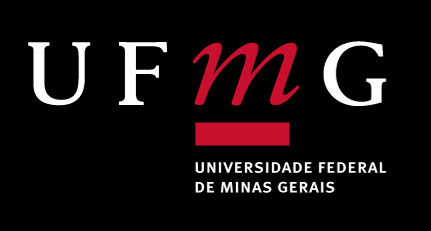Geografias macroeconômicas
Palavras-chave:
geografia econômica, desenvolvimento desigual, BRICS, variedades de capitalismo, economia política comparadaResumo
Em diálogo com o artigo de Ray Hudson sobre "potências emergentes" no capitalismo globalizado, este artigo de revisão reflete sobre a posição e a prioridade dessas questões macroscópicas no campo da geografia econômica, concentrando-se especialmente nas perspectivas de uma economia política reanimada em termos de desenvolvimento espacial desigual. São explorados dois temas: Primeiro, o artigo questiona o que significa o enfrentamento da problemática do capitalismo em ascensão (e em queda) e o motivo do vocabulário para essa discussão ter de ser importado, ou até mesmo improvisado. Em segundo lugar, o artigo explora o que pode significar não apenas revisitar e (re)afirmar, mas reconstruir noções de desenvolvimento espacial desigual, que, apesar de seu status praticamente incontestável no campo da geografia econômica, na prática, muitas vezes se deixou levar para o segundo plano explanatório, seja como pré-condição ontológica implícita ou como uma mera questão de sensibilidade ambiental.
Referências
BECKERT, J. Imagined futures: Fictional expectations and capitalist dynamics. Cambridge, MA: Harvard University Press, 2016.
BERGER, S. Toward a third industrial divide? In: OSTERMAN, P. (Ed.). Economy in society. Cambridge, MA: MIT Press, 2013. p. 65–88.
BLUESTONE, B.; HARRISON, B. The deindustrialization of America. New York: Basic Books, 1982.
BOSCHMA, R.; MARTIN, R. (Eds.). The handbook of evolutionary economic geography. Cheltenham: Edward Elgar, 2010.
BRENNER, N.; PECK, J.; THEODORE, N. Variegated neoliberalization: Geographies, modalities, pathways. Global Networks, v. 10, p. 182–222, 2010. DOI: 10.1111/j.1471-0374.2009.00277.x.
BURAWOY, M. The extended case method: Four countries, four decades, four great transformations, and one theoretical tradition. Berkeley: University of California Press, 2009.
CHRISTOPHERS, B. The great leveler: Capitalism and competition in the court of law. Cambridge, MA: Harvard University Press, 2016.
COE, N. M.; YEUNG, H. W. Global production networks: Theorizing economic development in an interconnected world. Oxford: Oxford University Press, 2015.
DICKEN, P. Geographers and “globalization”: (yet) another missed boat? Transactions of the Institute of British Geographers, v. 29, p. 5–26, 2004. DOI: 10.1111/j.0020-2754.2004.00111.x.
DICKEN, P. Global shift. New York, NY: Guilford, 2015.
DIXON, A. D. The new geography of capitalism: Firms, finance, and society. Oxford: Oxford University Press, 2014.
DUNFORD, M. Uneven and combined development. Institute of Geographical Sciences and Natural Resources Research, Chinese Academy of Sciences, Beijing, 2016. (Manuscrito não publicado).
DUNFORD, M. et al. Area development and policy: An agenda for the 21st century. Area Development and Policy, v. 1, p. 1–14, 2016. DOI: 10.1080/23792949.2016.1158621.
ELSTER, J. The theory of combined and uneven development: A critique. In: ROEMER, J. (Ed.). Analytical Marxism. Cambridge: Cambridge University Press, 1986. p. 54–63.
FLORIDA, R. The rise of the creative class. New York, NY: Basic Books, 2002.
FLORIDA, R.; KENNEY, M. The breakthrough illusion: Corporate America’s failure to move from innovation to mass production. New York, NY: Basic Books, 1990.
GIBSON-GRAHAM, J.-K. The end of capitalism (as we knew it): A feminist critique of political economy. Minneapolis: University of Minnesota Press, 1996.
GIDWANI, V.; WAINWRIGHT, J. On capital, not-capital, and development: After Kalyan Sanyal. Economic and Political Weekly, v. 49, p. 40–47, 2014.
HADJIMICHALIS, C.; HUDSON, R. Contemporary crisis across Europe and the crisis of regional development theories. Regional Studies, v. 48, p. 208–218, 2013. DOI: 10.1080/00343404.2013.834044.
HALL, S.; MASSEY, D. Interpreting the crisis. Soundings, v. 44, p. 57–71, 2010. DOI: 10.3898/136266210791036791.
HARVEY, D. The limits to capital. Oxford: Basil Blackwell, 1982.
HARVEY, D. Retrospect on The limits to capital. Antipode, v. 36, p. 544–549, 2004. DOI: 10.1111/j.1467-8330.2004.00431.x.
HAUSMANN, R. et al. The atlas of economic complexity: Mapping paths to prosperity. Cambridge, MA: MIT Press, 2013.
HOWELL, C.; CULPEPPER, P. D.; RUEDA, D. On Kathleen Thelen, Varieties of liberalization and the new politics of social solidarity. Socio-Economic Review, v. 13, p. 399–409, 2015. DOI: 10.1093/ser/mwv005.
HUDSON, R. Wrecking a region. London: Pion, 1989.
HUDSON, R. Producing places. New York, NY: Guilford, 2001.
HUDSON, R. Economic geographies: Spaces, circuits and flows. London: Sage, 2005.
HUDSON, R. Regions and regional uneven development forever? Some reflective comments upon theory and practice. Regional Studies, v. 41, p. 1149–1160, 2007. DOI: 10.1080/00343400701291617.
HUDSON, R. Rising powers and the drivers of uneven global development. Area Development and Policy, v. 1, p. 1–16, 2016.
KATZ, C. Capitalist mutations in emerging, intermediate and peripheral neoliberalism. In: BOND, P.; GOMEZ, A. (Eds.). BRICS: An anti-capitalist critique. London: Pluto Press, 2015. p. 70–93.
KELLY, P. F. Production networks, place and development: Thinking through global production networks in Cavite, Philippines. Geoforum, v. 44, p. 82–92, 2013. DOI: 10.1016/j.geoforum.2011.10.003.
LIPIETZ, A. Mirages and miracles: Crisis in global Fordism. London: Verso, 1987.
MAKKI, F. Reframing development theory: The significance of the idea of uneven and combined development. Theory and Society, v. 44, p. 471–497, 2015. DOI: 10.1007/s11186-015-9252-9.
MARX, K. Capital, Volume 1. Harmondsworth: Penguin, 1976.
MASSEY, D. Regionalism: Some current issues. Capital C Class, v. 2, p. 106–125, 1978. DOI: 10.1177/030981687800600105.
MASSEY, D. Spatial divisions of labour. London: Macmillan, 1984.
MCMICHAEL, P. World-systems analysis, globalization and incorporated comparisons. Journal of World Systems Research, v. 6, p. 668–690, 2000. DOI: 10.5195/jwsr.2000.192.
PECK, J. Editorial: American recession. Transactions of the Institute of British Geographers, v. 27, p. 131–135, 2002. DOI: 10.1111/1475-5661.00045.
PECK, J. Economic geography: Island life. Dialogues in Human Geography, v. 2, p. 113–133, 2012. DOI: 10.1177/2043820612443779.
PECK, J. Explaining (with) neoliberalism. Territory, Politics, Governance, v. 1, p. 132–157, 2013a. DOI: 10.1080/21622671.2013.785365.
PECK, J. For Polanyian economic geographies. Environment and Planning A, v. 45, p. 1545–1568, 2013b. DOI: 10.1068/a45236.
PECK, J. Cities beyond compare? Regional Studies, v. 49, p. 160–182, 2015. DOI: 10.1080/00343404.2014.980801.
PECK, J. Offshore: Exploring the worlds of global outsourcing. Oxford: Oxford University Press, no prelo.
PECK, J. Uneven regional development. In: RICHARDSON, D.; CASTREE, N.; GOODCHILD, M. F.; KOBAYASHI, A.; LIU, W.; MARSTON, R. A. (Eds.). The Wiley-AAG international encyclopedia of geography. Oxford: Wiley-Blackwell, no prelo.
PECK, J.; TICKELL, A. Searching for a new institutional fix: The after-Fordist crisis and global-local disorder. In: AMIN, A. (Ed.). Post-Fordism: A reader. Oxford: Blackwell, 1994. p. 280–316.
PECK, J.; THEODORE, N. Variegated capitalism. Progress in Human Geography, v. 31, p. 731–772, 2007. DOI: 10.1177/0309132507083505.
PECK, J.; ZHANG, J. A variety of capitalism... with Chinese characteristics? Journal of Economic Geography, v. 13, p. 357–396, 2013. DOI: 10.1093/jeg/lbs058.
PIORE, J. J.; SABEL, C. The second industrial divide. New York, NY: Basic Books, 1984.
ROBINSON, W. BRICS and transnational capitalism. In: BOND, P.; GOMEZ, A. (Eds.). BRICS: An anti-capitalist critique. London: Pluto Press, 2015. p. 231–235.
ROSENBERG, J. The “philosophical premises” of uneven and combined development. Review of International Studies, v. 39, p. 569–597, 2013. DOI: 10.1017/S0260210512000381.
SANYAL, K. Rethinking capitalist development: Primitive accumulation, governmentality and post-colonial capitalism. London: Routledge, 2007.
SCOTT, A. J. Economic geography: The great half-century. Cambridge Journal of Economics, v. 24, p. 483–504, 2000. DOI: 10.1093/cje/24.4.483.
SHEPPARD, E. The spaces and times of globalization: Place, scale, networks, and positionality. Economic Geography, v. 78, p. 307–330, 2002. DOI: 10.2307/4140812.
SHEPPARD, E. Limits to globalization: The disruptive geographies of capitalist development. Oxford: Oxford University Press, 2016.
SHEPPARD, E. Heterodoxy as orthodoxy: Prolegomenon for a geographical political economy. In: CLARK, G. L.; FELDMAN, M. P.; GERTLER, M. S.; WÓJCIK, D. (Eds.). The new Oxford handbook of economic geography. Oxford: Oxford University Press, no prelo.
SMITH, N. Uneven development: Nature, capital and the production of space. Oxford: Blackwell, 1984.
STORPER, M.; WALKER, R. The capitalist imperative: Territory, technology and industrial growth. Oxford: Wiley-Blackwell, 1989.
THRIFT, N. Knowing capitalism. London: Sage, 2005.
WALKER, R.; STORPER, M. Capital and industrial location. Progress in Human Geography, v. 5, p. 473–509, 1981. DOI: 10.1177/030913258100500401.
WALLERSTEIN, I. Whose interests are served by the BRICs? In: BOND, P.; GOMEZ, A. (Eds.). BRICS: An anti-capitalist critique. London: Pluto Press, 2015. p. 269–273.
WERNER, M. Global displacements: The making of uneven development in the Caribbean. Oxford: Wiley-Blackwell, 2016a.
WERNER, M. Global production networks and uneven development: Exploring geographies of devaluation, disinvestment and exclusion. Department of Geography, SUNY-Buffalo, 2016b. (Manuscrito não publicado).
WERNER, M.; BAIR, J.; FERNÁNDEZ, V. R. Linking up to development? Global value chains and the making of a post-Washington consensus. Development and Change, v. 45, n. 6, p. 1219–1247, 2014. DOI: 10.1111/dech.12132.
WITT, M. A. et al. The business systems of the world’s leading 61 economies: Institutional comparison, clusters, and implications for varieties of capitalism and business systems research. INSEAD Working Paper 2015/66/EPS/IIPI, Fontainebleau: INSEAD, 2015. DOI: 10.13140/RG.2.1.1842.9922.
Downloads
Publicado
Edição
Seção
Licença
Copyright (c) 2024 Jamie Peck

Este trabalho está licenciado sob uma licença Creative Commons Attribution 4.0 International License.
Os artigos desta revista obedecem a licença Creative Commons — Attribution 4.0 International — CC BY 4.0









